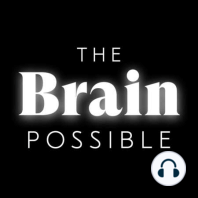39 min listen
Ashley Wood - Families Living with Epilepsy
ratings:
Length:
56 minutes
Released:
Jun 30, 2020
Format:
Podcast episode
Description
Ashley Wood is a Licensed Clinical Social Worker in Northern California and has been in private practice since 2002. As she approaches her 20th year of practice, she feels rooted in her orientation as an experiential therapist. AEDP-Accelerated, Experiential Dynamic Psychotherapy provides a roadmap for how she works with people. Topics such as mindfulness, neuroscience, and attachment theory are areas she regularly studies from a number of different experts around the world. Ashley is also the mother of a child with Dravet Syndrome, a form of epilepsy. Ashley offers this piece of advice to other parents, “...Consider really surrounding yourself with support and being open to receiving support. Whether it's therapy, or friends, or mentors, or the spiritual community, whatever works for you, but find a way to help you process the feelings coming up, the grief, and the pain.” In this episode, The Brain Possible Founder and CEO, Emily Abbott, and Ashley discuss Ashley’s journey with her daughter’s epilepsy, emotional wellness, and how the Lab Method technology, in particular, has supported her whole family. Listen in to find out more and to learn about the deck of Life Support cards for families living with epilepsy that Ashley co-authored with Polly Ely, founder of Lab Method.Support the show
Released:
Jun 30, 2020
Format:
Podcast episode
Titles in the series (80)
Heather Burlison - Whole Body Wellness by The Brain Possible
